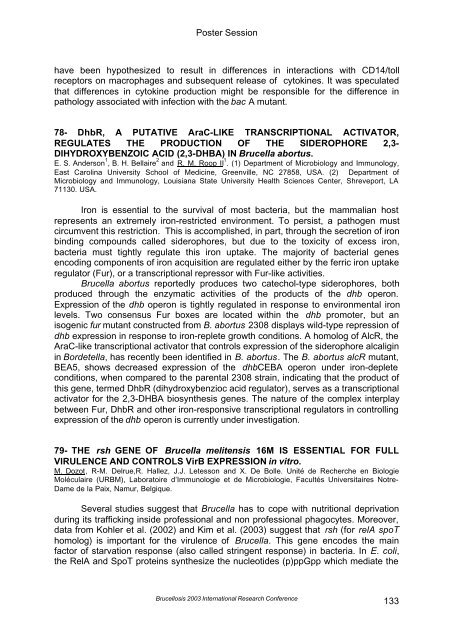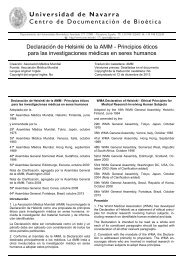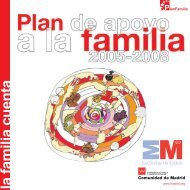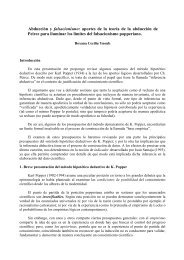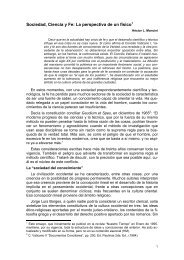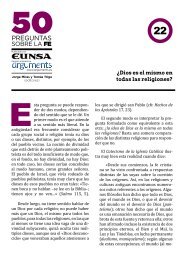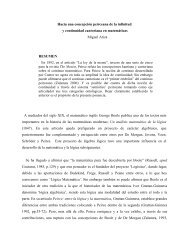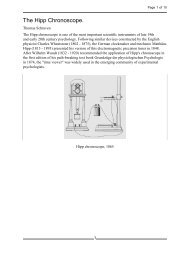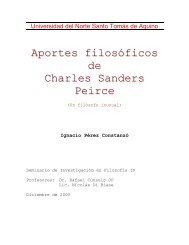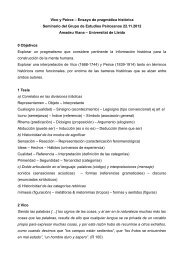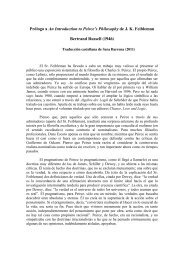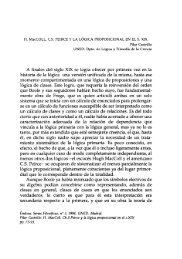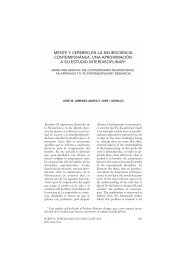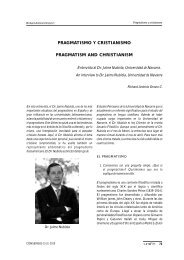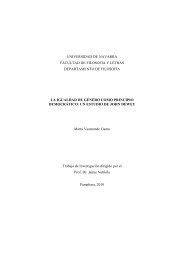Brucellosis 2003 proceedings - PHIDIAS
Brucellosis 2003 proceedings - PHIDIAS
Brucellosis 2003 proceedings - PHIDIAS
You also want an ePaper? Increase the reach of your titles
YUMPU automatically turns print PDFs into web optimized ePapers that Google loves.
Poster Session<br />
have been hypothesized to result in differences in interactions with CD14/toll<br />
receptors on macrophages and subsequent release of cytokines. It was speculated<br />
that differences in cytokine production might be responsible for the difference in<br />
pathology associated with infection with the bac A mutant.<br />
78- DhbR, A PUTATIVE AraC-LIKE TRANSCRIPTIONAL ACTIVATOR,<br />
REGULATES THE PRODUCTION OF THE SIDEROPHORE 2,3-<br />
DIHYDROXYBENZOIC ACID (2,3-DHBA) IN Brucella abortus.<br />
E. S. Anderson 1 , B. H. Bellaire 2 and R. M. Roop II 1 . (1) Department of Microbiology and Immunology,<br />
East Carolina University School of Medicine, Greenville, NC 27858, USA. (2) Department of<br />
Microbiology and Immunology, Louisiana State University Health Sciences Center, Shreveport, LA<br />
71130. USA.<br />
Iron is essential to the survival of most bacteria, but the mammalian host<br />
represents an extremely iron-restricted environment. To persist, a pathogen must<br />
circumvent this restriction. This is accomplished, in part, through the secretion of iron<br />
binding compounds called siderophores, but due to the toxicity of excess iron,<br />
bacteria must tightly regulate this iron uptake. The majority of bacterial genes<br />
encoding components of iron acquisition are regulated either by the ferric iron uptake<br />
regulator (Fur), or a transcriptional repressor with Fur-like activities.<br />
Brucella abortus reportedly produces two catechol-type siderophores, both<br />
produced through the enzymatic activities of the products of the dhb operon.<br />
Expression of the dhb operon is tightly regulated in response to environmental iron<br />
levels. Two consensus Fur boxes are located within the dhb promoter, but an<br />
isogenic fur mutant constructed from B. abortus 2308 displays wild-type repression of<br />
dhb expression in response to iron-replete growth conditions. A homolog of AlcR, the<br />
AraC-like transcriptional activator that controls expression of the siderophore alcaligin<br />
in Bordetella, has recently been identified in B. abortus. The B. abortus alcR mutant,<br />
BEA5, shows decreased expression of the dhbCEBA operon under iron-deplete<br />
conditions, when compared to the parental 2308 strain, indicating that the product of<br />
this gene, termed DhbR (dihydroxybenzioc acid regulator), serves as a transcriptional<br />
activator for the 2,3-DHBA biosynthesis genes. The nature of the complex interplay<br />
between Fur, DhbR and other iron-responsive transcriptional regulators in controlling<br />
expression of the dhb operon is currently under investigation.<br />
79- THE rsh GENE OF Brucella melitensis 16M IS ESSENTIAL FOR FULL<br />
VIRULENCE AND CONTROLS VirB EXPRESSION in vitro.<br />
M. Dozot, R-M. Delrue,R. Hallez, J.J. Letesson and X. De Bolle. Unité de Recherche en Biologie<br />
Moléculaire (URBM), Laboratoire d’Immunologie et de Microbiologie, Facultés Universitaires Notre-<br />
Dame de la Paix, Namur, Belgique.<br />
Several studies suggest that Brucella has to cope with nutritional deprivation<br />
during its trafficking inside professional and non professional phagocytes. Moreover,<br />
data from Kohler et al. (2002) and Kim et al. (<strong>2003</strong>) suggest that rsh (for relA spoT<br />
homolog) is important for the virulence of Brucella. This gene encodes the main<br />
factor of starvation response (also called stringent response) in bacteria. In E. coli,<br />
the RelA and SpoT proteins synthesize the nucleotides (p)ppGpp which mediate the<br />
<strong>Brucellosis</strong> <strong>2003</strong> International Research Conference<br />
133


